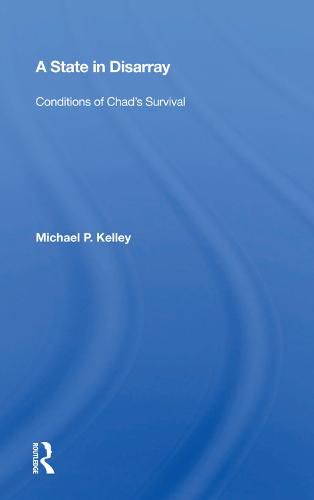Readings Newsletter
Become a Readings Member to make your shopping experience even easier.
Sign in or sign up for free!
You’re not far away from qualifying for FREE standard shipping within Australia
You’ve qualified for FREE standard shipping within Australia
The cart is loading…






Although independent since 1960, Chad has proved to be one of the least viable African states. Sustained politically and financially by other countries from the outset, Chad’s internal warfare has made it the prey of external powers. Yet Chad has survived-an integral element of the Organization of African Unity’s Pax Africana and of a peaceful trans-Saharan Africa. Its jeopardized survival is a shaky testimony to the continuing validity of the African continent’s colonial-based states-system-underwritten by the OAU and the UN-and at the same time it provides a striking example of the cumulative effects of Africa’s post-independence problems. Examining the state’s internal weakness and the degree and nature of its foreign involvements, the author focuses on Chad’s continuing dilemma: The outside support so crucial for viability is the very thing that undermines its international standing. The roles of Libya, France, the United States, the UN, the OAU, and the trans-Saharan regional subsystem are also analyzed as the author illuminates the quandary of supporting the state without aggravating its conflicts.
$9.00 standard shipping within Australia
FREE standard shipping within Australia for orders over $100.00
Express & International shipping calculated at checkout
Although independent since 1960, Chad has proved to be one of the least viable African states. Sustained politically and financially by other countries from the outset, Chad’s internal warfare has made it the prey of external powers. Yet Chad has survived-an integral element of the Organization of African Unity’s Pax Africana and of a peaceful trans-Saharan Africa. Its jeopardized survival is a shaky testimony to the continuing validity of the African continent’s colonial-based states-system-underwritten by the OAU and the UN-and at the same time it provides a striking example of the cumulative effects of Africa’s post-independence problems. Examining the state’s internal weakness and the degree and nature of its foreign involvements, the author focuses on Chad’s continuing dilemma: The outside support so crucial for viability is the very thing that undermines its international standing. The roles of Libya, France, the United States, the UN, the OAU, and the trans-Saharan regional subsystem are also analyzed as the author illuminates the quandary of supporting the state without aggravating its conflicts.